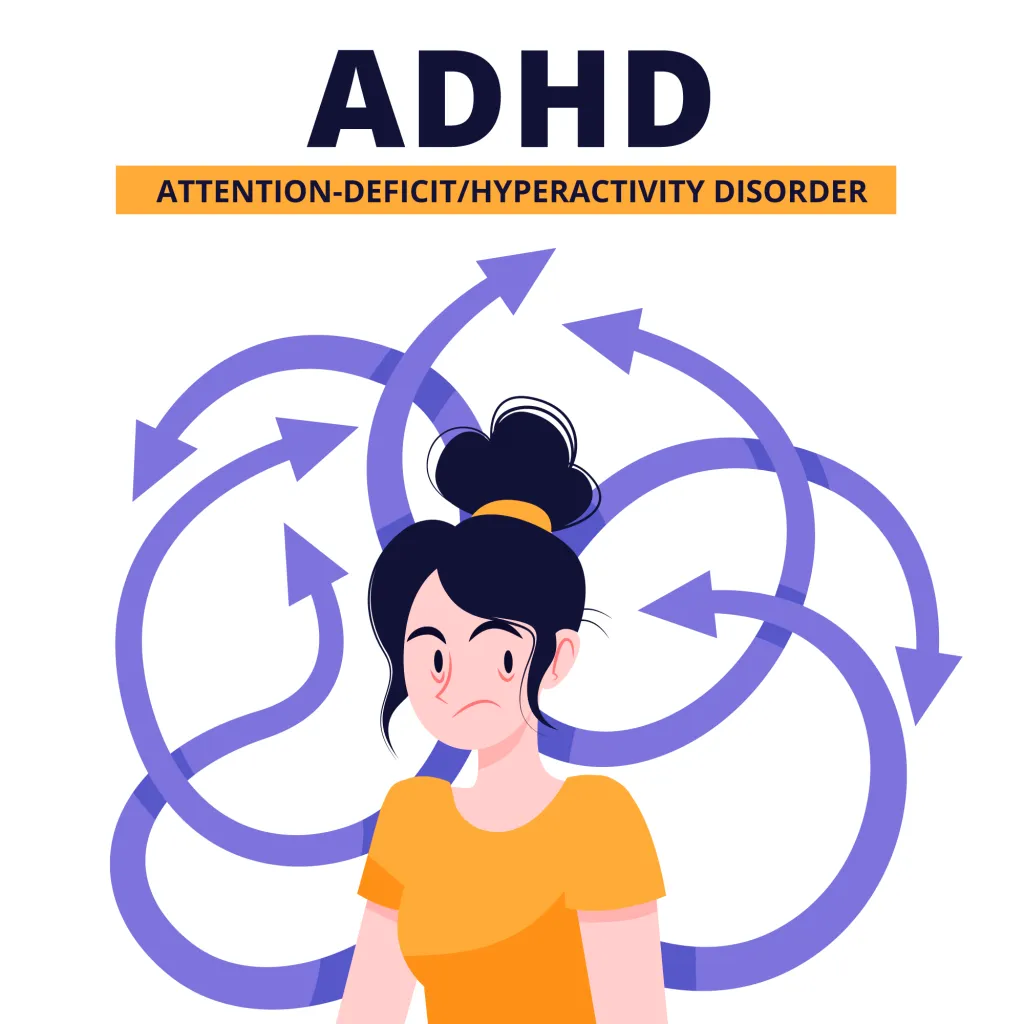First of all,
The symptoms of Attention Deficit Hyperactivity Disorder (ADHD), which impair attention, organization, and time management, provide particular difficulties in the workplace. On the other hand, people with ADHD have unique qualities that, when used well, can help them succeed in the workplace. The dynamics of ADHD in the workplace are examined in this article, along with typical symptoms that could affect output and performance. It also explores all-encompassing approaches, such as therapy choices and mindfulness exercises like meditation, to enable people with ADHD to succeed in their career aspirations.
Workplace Difficulties Associated with ADHD:
Inattentiveness, impulsivity, and hyperactivity are some of the symptoms of ADHD that can cause problems in the workplace. Overall job performance may be impacted by issues with time management, impulsively taking on new initiatives, and inability to focus during meetings or duties. The first step in putting good methods into practice is recognizing these signs.
Focus & Attention:
Those with ADHD can benefit greatly from mindfulness meditation by using it as a technique to help them pay attention and focus at work. People can improve their general cognitive functioning, focus their attention on the work at hand, and become less easily distracted by practicing present-moment awareness. Sustained focus is facilitated by regular meditation practice.
Strengths of ADHD Patients in the Workplace:
Although ADHD patients have difficulties, they frequently display strengths that are advantageous in a professional setting. Among the positive traits linked to ADHD are creativity, hyperfocus on interests, and flexibility. Success in a variety of job tasks can be attributed to recognizing and utilizing these skills.
Workplace Support and Accommodations:
Employers who are aware of the effects of ADHD on employees can provide accommodations to help those who need it. Task prioritizing, open lines of communication, and flexible work hours can all help to foster an environment that supports peak performance. Promoting candid dialogue regarding personal requirements cultivates a helpful work environment.
Options for Treatment:
Workplace Medication Management:
Medications, including stimulants and non-stimulants, are frequently included in treatment programs for attention deficit hyperactivity disorder (ADHD) and can be very important. Adherence to a well-managed pharmaceutical schedule has the potential to enhance cognitive functioning, including concentration, impulse control, and overall job performance. Adequate communication with medical professionals guarantees the right dosage and efficacy.
Cognitive-Behavioral Time Management Techniques:
Cognitive-Behavioral Therapy (CBT) techniques are useful in treating time management issues related to ADHD. Using visual aids, breaking down activities into manageable pieces, and creating goals are some techniques that can help with organization and time management in the workplace. CBT offers useful techniques for managing day-to-day obligations.
Executive Function Coaching:
This type of specialist intervention aims to enhance skills that are essential for success in the workplace. Coaches collaborate with clients to create time management, planning, and organizing methods. This tailored strategy makes it easier for people with ADHD to manage their work obligations.
Techniques for Mindfulness:
Methods for Managing Tasks with Mindfulness:
It is possible to incorporate mindfulness into methods for managing tasks. People can use mindful techniques to prioritize tasks and make deliberate judgments, instead of giving in to impulsive impulses. By taking a deliberate and nonjudgmental attitude to finishing tasks, mindful task management promotes a more orderly and productive workflow.
Reducing Stress at Work with Mindfulness:
People with ADHD frequently struggle with stress at work. Effective strategies for handling stress in the workplace include mindfulness exercises like meditation and stress-reduction methods. Building awareness and resilience helps people deal with obstacles at work more skillfully.
Managing Dynamics in the Workplace:
Interactions in the Workplace:
Effective communication is a key component of success in the workplace. Certain communication techniques, like active listening, summarizing important ideas, and seeking clarification when necessary, may be helpful for people with ADHD. Gaining proficiency in communication skills promotes teamwork and reduces miscommunication.
Setting Realistic Goals and Prioritizing Tasks:
For people with ADHD, setting realistic goals and prioritizing tasks are essential abilities. Effective task management involves defining specific goals, segmenting more complex projects into smaller, more manageable steps, and utilizing tools like to-do lists. Successful time management and prioritization at work are critical skills.
Establishing a Supportive Work Environment:
The success of people with ADHD is greatly influenced by the supportive work environment. Employers can promote inclusivity by establishing clear guidelines, giving frequent feedback, and highlighting each worker’s unique abilities. For workers with ADHD, fostering a work environment that celebrates variety in cognitive styles is beneficial to their general well-being.
In summary:
With ADHD, thriving in the workplace necessitates a thorough and customized strategy. Success is influenced by identifying symptoms, utilizing strengths, and putting customized tactics into practice. Core symptoms can be addressed by a variety of treatment methods, such as cognitive-behavioral therapies and pharmaceutical management. In particular, mindfulness exercises like meditation are excellent resources for lowering stress, increasing focus, and boosting cognitive performance in general. Establishing goals, fostering a positive work atmosphere, and communicating effectively are all necessary for navigating workplace dynamics. When these techniques are used together, people with ADHD can succeed in their professional efforts and overcome obstacles they face at work.

